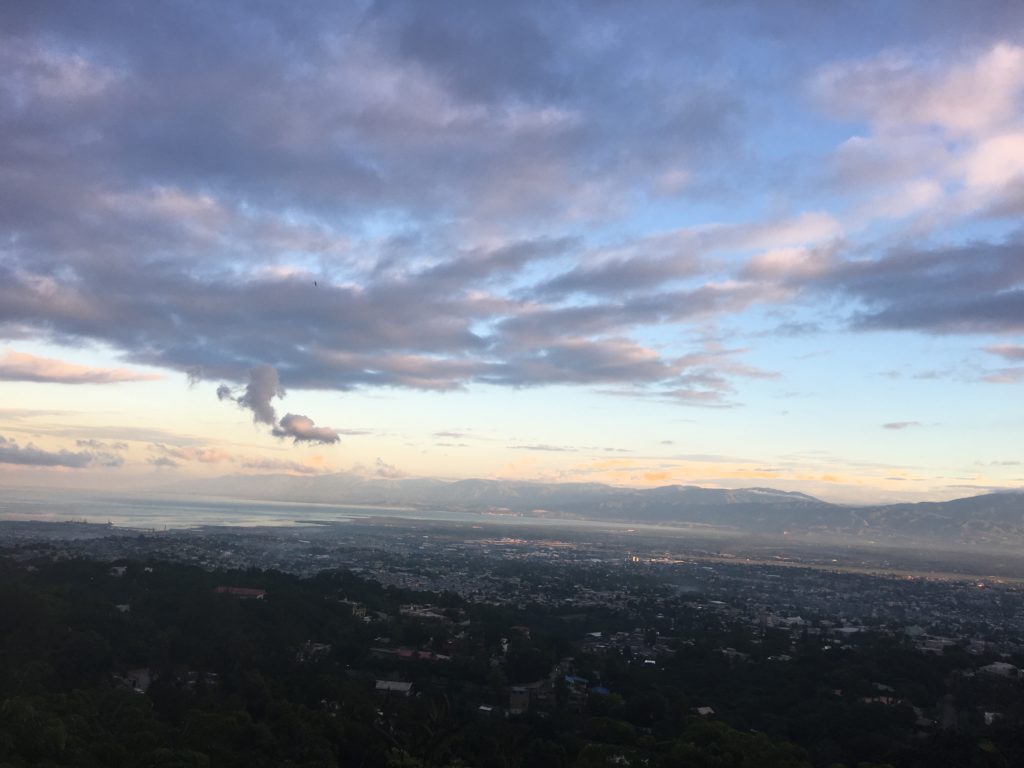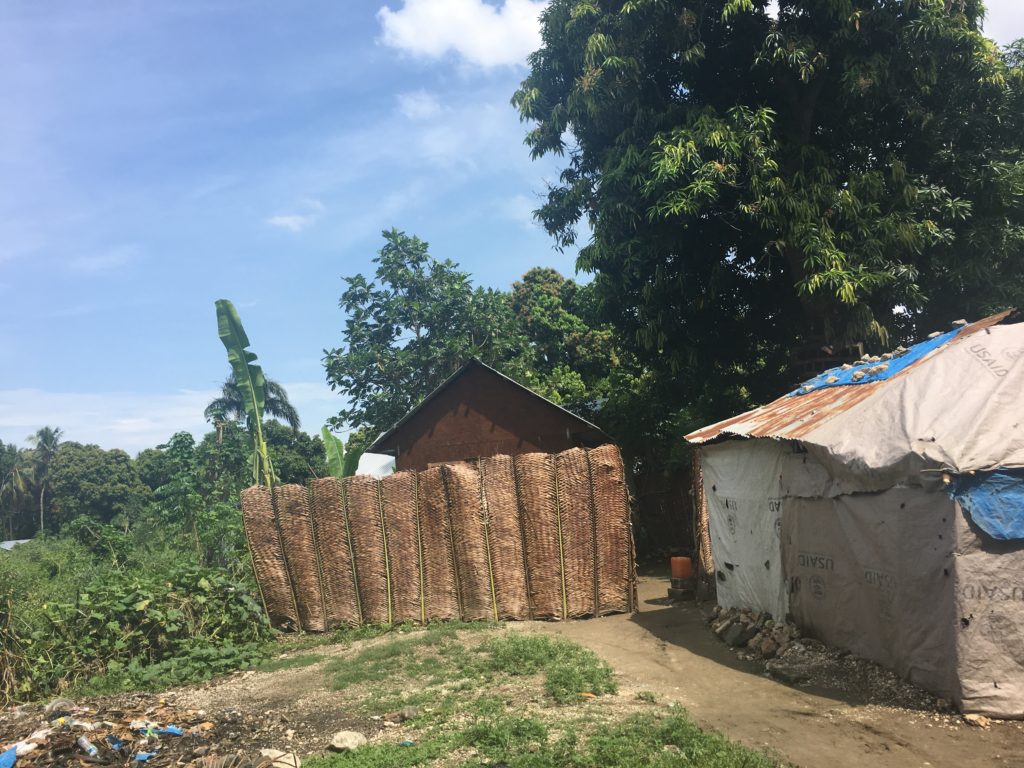
There is a rhythm of Haiti that belies the stereotypical Caribbean steel drum beat. The cadence of a constant hum, a tap tap tap of metal artisans crafting discarded metal drums into fine art, the hammering of nails into corrugated metal that is a constant rhythmic reminder of Hurricane Matthew’s destruction. There are car horns blaring and the chatter of market vendors punctuating the otherwise calm air.
The same gentle Caribbean breeze that peppers the ad campaigns of more prosperous islands also blows on Haiti. Mother Nature and the media alike have not been kind to this outpost of Hispaniola. The government has faced its share of corruption and currently seems to be a dysfunctional obstacle to the progress people crave and need. The tenor of the country is upbeat and proud when it would be easy to fall prey to self pity and despair.
Yet despair does indeed permeate Haiti’s towns and villages. There earthquake of 2010 has left an indelible mark both literally and figuratively. Everyone is more keen of their mortality. Some take life slowly and thoughtfully while others are risk takers and change makers. The earthquake’s destruction is still palpable in its epicenter Leogane and at points throughout the capital city of Port au Prince. Tents and tarps branded US AID or Samaritan’s Purse comprise makeshift homes. Neighborhoods are bustling amidst an array of thatched huts and cinderblock structures. The well is the proverbial water cooler where neighbors come to gab and gossip. Children frolic underfoot while adults peel vegetables, gather firewood, and secure rooftops. The chores are different, but the general undertone of family life is familiar.

There are myriad universal truths that are apparent to me the more I travel. The way a baby nestles into the crook of its mother’s neck. A father holding his son’s hand crossing the street to school. A backpack slung off kilter from a a little girl’s shoulder as she runs through the school gate. A teenage boy wearing slimfit trendy pants, mirrored sunglasses, and headphones. Young girls dressed up, lips glossed, posing for selfies. A couple kissing goodbye as they part ways going to work. The list goes on. We are indeed more alike that we are different, cliche as it sounds.
Haiti’s image in our western press accentuates the struggles without highlighting the beauty. The mountains are ravishing as they go from undulating green folds to arid caked earth. The fields are lush and verdant. Bright yellow flowers hang precariously from vines along the ridge of mountaintops. Lakes and rivers dot the hillside towns. Mother Nature is both beast and beauty in Haiti.
Nothing underscores this more than Hurricane Matthew making his presence known along Haiti’s west coast. The towns of Les Cayes and Jeremie were hit the worst, and all points in between are equally ravaged. Someone who had visited Jeremie told me he couldn’t sleep for days after seeing the destruction. We were in Les Cayes and Camp Perrin, and both looked like a bomb had gone off. Trees were ripped from the mountains leaving a beige gray landscape that had once been vibrant green. Neighborhoods were accentuated by the color of shiny new metal roofs or blue tarps. Many homes were without roofs, and walls fell way to the storm’s wind. Debris litters the roads that are ripped apart and damaged from flood waters. The scene is almost apocalyptic. Yet Les Cayes was brimming with bikes and people and relief supplies aboard trucks of all sizes. We were there on a sunny day so the market was bustling, albeit with few items to sell, and laundry was set on rocks to dry. It was the first sunny after days of rain so families were taking advantage of the opportunity to get basic chores done and return to a semblance of normality.
The tapping of hammers reverberated throughout our drive from Les Cayes to Port au Prince. When day made way for night the sounds changed to a quiet hum of people chattering and making their way home. The darkness veiled the day’s activity with just a few solar powered lights twinkling along the road. As night fell, seemingly more quickly than it does at home, the din of Haiti quieted to a murmur.